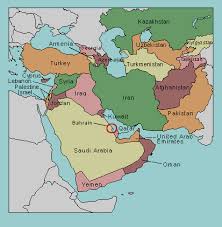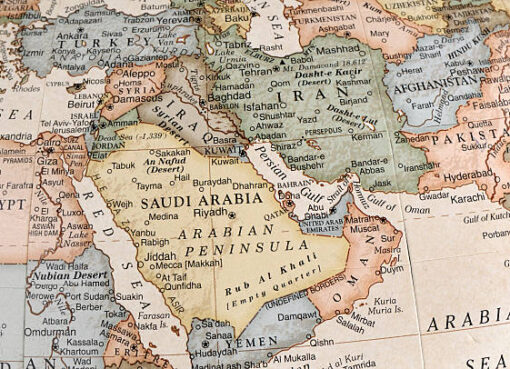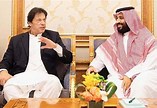The Russia-Ukraine war has shaken up the world’s energy markets and supply chain logistics, unravelling many geopolitical faultlines in West Asia. The OPEC+ oil cuts and Israel-Lebanon maritime gas deal appear to be just harbingers of much more profound changes that are likely to transform the current strategic equations in West Asia and how it interacts with the world at large
by Prasad Nallapati
The Russia-Ukraine war has shaken up the world’s energy markets and supply chain logistics, unravelling many geopolitical faultlines in West Asia. The longheld Saudi-US energy security pact is on the verge of collapse while the Saudis are facing increased challenges to its regional dominance from its GCC allies. Israel is about to create history again, midwifed by the US, by reaching a maritime boundary agreement with Lebanon that will add another source of gas supplies to Europe. Its Abraham accords with some Gulf nations has already brought a new dynamism to the region.
The US is considering a series of measures to punish Saudi Arabia for the OPEC+ oil production cuts decision which is considered by the Biden Administration an act to help Russia to lessen the impact of sanctions. While some of the proposed legislative measures may have to wait the midterm elections next month, President Biden announced on October 19 the release of 15 million barrels of oil from US strategic reserves to calm the energy prices that were rising again after the OPEC+ decision.
However, Saudi Arabia and its Gulf Cooperation Council (GCC) allies, including the UAE and Kuwait, have defended the decision as purely `technical’ matter based on `economic indicators’. In further proof, they referred to the latest OPEC’s Monthly Oil Market Report which projected a declining growth of demand in the next two years. To further assuage American anger, Saudi Arabia announced $ 400 million humanitarian aid to Ukraine and its Crown Prince Mohammed bin Salman spoke on phone to President Zelensky offering his services for de-escalation of the situation. UAE President Mohammed bin Zayed too traveled to Russia on October 12 ostensibly on a similar mission, but it was clear that the two countries have much larger ambitious goals of economic cooperation.
Saudi – UAE spat spiraling into regional competition
Notwithstanding the semblance of unity among the OPEC+ members, their deep divisions are increasingly coming into the fore. The UAE and Kuwait have reportedly questioned the timing of the production cuts, although they fell in line at the end. Bader al-Saif, a nonresident fellow at Malcolm H. Kerr Carnegie Middle East Center in Beirut, stated that the UAE demanded a higher quota before a supply deal is reached. The dispute is seen as another crack in the Saudi-UAE strategic partnership, which is already plagued with serious divergences on several key issues such as Yemen, Qatar, Israel and Turkey.
Some of the Twitter exchanges bring the spat into the public reflecting new `hypernationalism’. Turki Al Sheikh, an advisor to the Saudi Royal Court and a confidant of the Crown Prince, vented after the OPEC+ row: “My friend…You are no longer my friend….time…..and circumstances have changed you…[but] they did not change me.”
The Emirati statesman, Dhahi Khalfan, a former official whose tweets often reflect the state’s mood, was equally unsparing. “Interests precede relationships”…”This era does not know friendship or brotherhood..it is an era of material interests”…”Human survival is not for the strongest, but the smartest.”
Badar further writes, “…the standoff speaks to dynamics in a region undergoing major recalibration. Rising economic competition in the Gulf and a more assertive Emirati voice are two of its clearest manifestations.” The relationship, however, will survive such differences as benefits far outweigh the costs.
Israel – Lebanon Maritime deal, another trend setter
The other dynamic in the region is a maritime agreement between Israel and Lebanon, mediated by the US. The deal covers the 330-square-miles of the Mediterranean Sea with the contested water being divided by a line straddling the “Qana” natural gas field. Both parties would be able to produce gas on their side of the line, in addition to royalty arrangements agreed upon. Israeli Prime Minister Yair Lapid has stated that the deal “responds to all the Israeli security, economic and legal demands.”
According to Robert Barron of the United States Institute of Peace (USIP), the agreement offers Israel approximately 17 percent of revenues from Lebanon’s Qana-Sidon gas field, eliminating some uncertainty around Israel’s offshore holdings, and could rapidly expand Israeli energy production, allowing for increased exports to Europe. The French energy company, Total, will operate the Qana-Sidon gas field and royalties, as agreed, will be directly handed over to Israel. For Lebanon, which is mired in political and economic hardships for long, it is highly beneficial for both enhanced energy resources and investment opportunities.
While the agreement is limited in nature and does not represent a peace deal between the two warring countries, it nonetheless stands as an important step forward by embodying Lebanon’s implicit or “soft” recognition of Israel, says Mona Yacoubian, another expert from the USIP.
Like the Abraham accords between Israel and some Arab countries like the UAE and Bahrain, which were midwifed by Jared Kushner, the then adviser and son-in-law of President Trump, the latest agreement was the result of efforts by Amos Hochstein, the special envoy of the Biden administration for international energy affairs.
But for the Russian invasion of Ukraine and consequent energy crisis for Europe, the latest deal would not have happened. Only last year, Hochstein said, “Why would we build a fossil-fuel pipeline between the EastMed and Europe when our entire policy is to support new technology… and new investments in going green and in going clean?”
Both Israel and Lebanon are now racing against time to get legislative approvals to the deal with the deadline being the 1stof November. Lebanese President Michel Aoun will be ending his term by then without a successor being found yet and the Israelis are going to the polls to choose their next leader. Hezbollah, which is Iran’s arm in Lebanon, appears to have assented to the deal, though grudgingly, in view of its vast economic benefits. But, Benjamin Netanyahu, Israel’s ousted Prime Minister and current opposition leader, is all geared to defeat it in the Knesset, the country’s parliament.
The OPEC+ oil cuts and Israel-Lebanon maritime gas deal appear to be just harbingers of much more profound changes that are likely to transform the current strategic equations in West Asia and how it interacts with the world at large.
(Prasad Nallapati, former Additional Secretary to Govt of India, is he head of the Hyderabad-based think-tank, `Deccan Council – Centre for Strategic Initiatives’.




